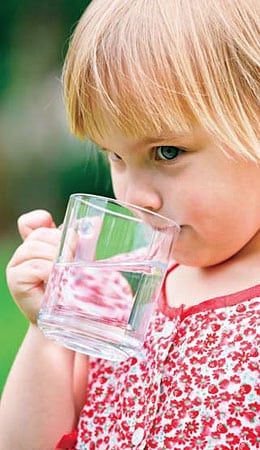
Is Your Drinking Water Safe? Test It to Be Sure
Many homeowners have questions about the safety of the water that comes out of their kitchen faucet, and for good reason. Mine tailings, agricultural runoff, livestock waste, sewage and industrial wastes are just a few of the possible sources that can quickly pollute an entire water supply. The EPA requires that every municipal water district print out an annual CCR (Consumer Confidence Report) that contains information on the levels of chemicals, bacterial contaminants, heavy metals, and other pollutants in your municipal water supply. If you live in a rural area, or just want to double check your CCR, you can have your water tested by private testing labs, county and state health laboratories and departments of health. In fact, many independent organizations suggest that you test your water annually just to be safe, even if it’s tested safe in the past.
Safe Drinking Water Solutions
If your tests come back showing that you don’t have safe drinking water, there are ways to treat your water to make it safe. The appropriate solution depends on the nature of your contaminants, since there are a variety of water purification systems, each of which addresses different water quality problems. Here’s a short list of the most common purification systems, and what they’re used for.
CARBON FILTERS are effective at removing foul tastes and odors from water, as well as fuel products and pesticides. If you have problems with lead, VOCs, asbestos, cysts, and coliforms, there are specially made, certified carbon filters that can help.
REVERSE OSMOSIS FILTERS use water pressure to force water through a membrane that filters contaminating particulates. Because the membrane’s pores are so fine, almost nothing but water gets through. These are used by many bottled water companies because it does such a thorough job and is one of few filters that effectively removes metals and nitrates.
WATER SOFTENING SYSTEMS remove minerals, especially calcium and magnesium, in your water. Hard water and its high mineral content generally aren’t linked to safe drinking water concerns, but at high enough levels they can be an issue. Most homeowners get a water softening system to reduce mineral buildup in pipes and on fixtures, and to make water more pleasant for bathing and washing (bathing in hard water can leave soap scum that traps bacteria and can cause skin irritation). Safe drinking water is vital to good health, making poor water quality a serious problem. If you suspect your water isn’t safe to drink, or have already tested it and found water quality to be a problem, contact Haldeman Mechanical to install the right system to make your water safe again.
